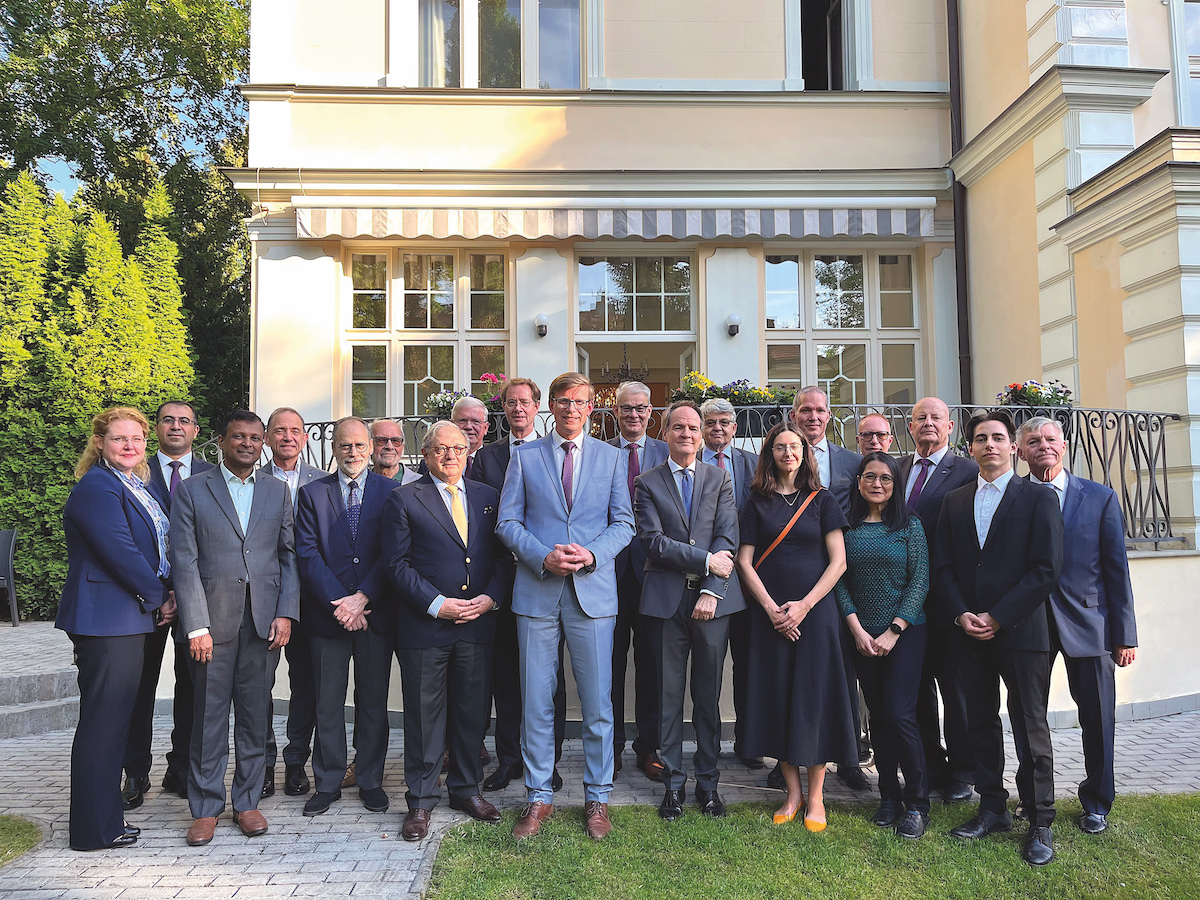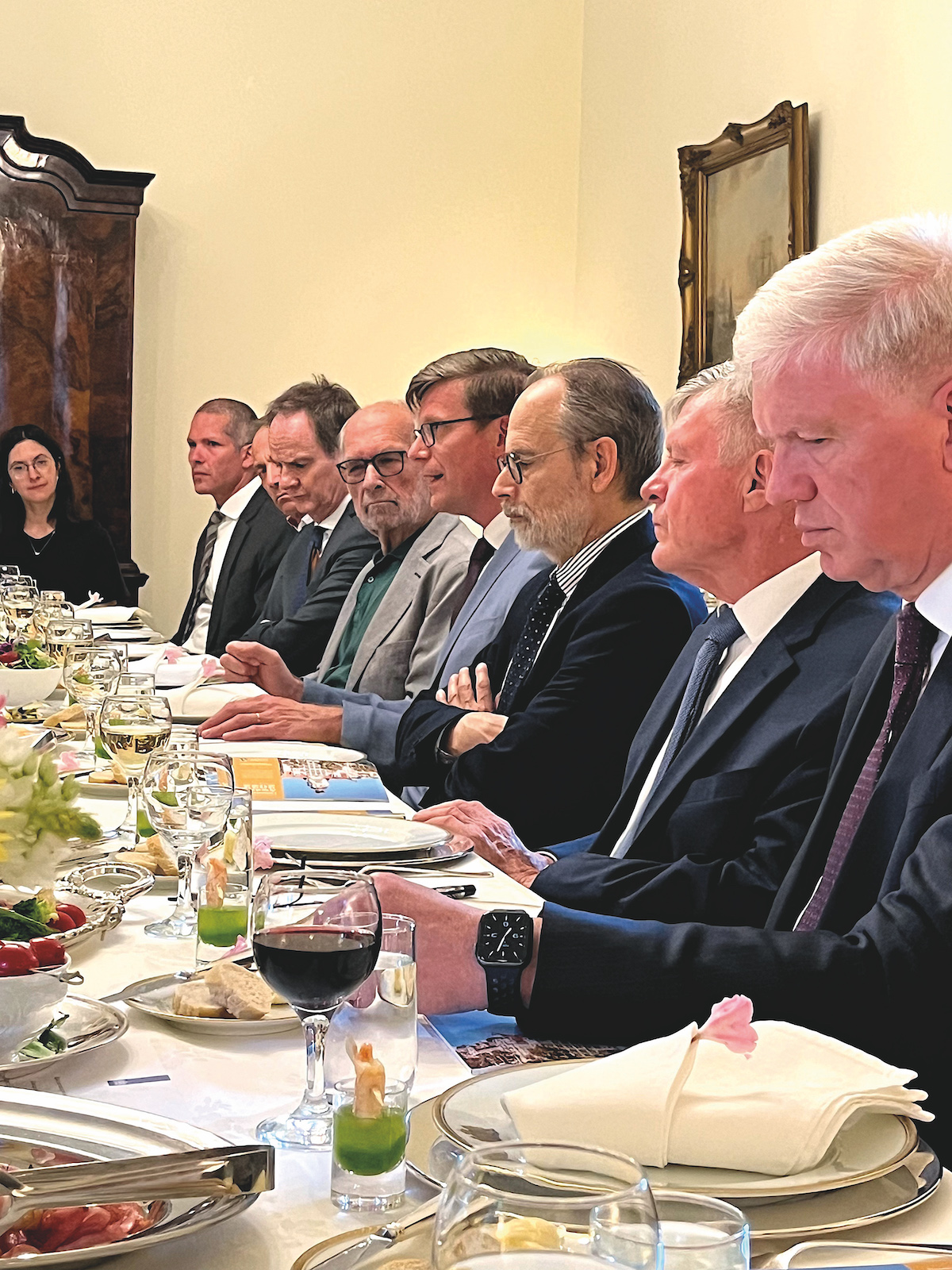
In the picture are (not in order): H.E. Mr. Daan Huisinga, Ambassador of the Netherlands, Hon. Martin Kupka, Minister of Transport,
H.E. Mr. Hemant Harishchandra Kotalwar, Ambassador of India, H.E. Mr. Pasi Olavi Tuominen, Ambassador of Finland, H.E. Mr. Victor Conrad Ronneberg, Ambassador of Norway, Mr. Samer Al-Attabi, Counselor – Deputy Head of Mission of the Embassy of Iraq, H.E. Mr. Philippe Gérald Guex, Ambassador of Switzerland, H.E. Mr. Alberto Moreno Humet, Ambassador of Spain, H.E. Mr. Luís de Almeida Sampaio, Ambassador of Portugal, Marc Ellenbogen, President of the Prague Society, Michael Stimson, Vice President of the Prague Society,
Hon. Stefan Fule, former EU Commissioner, Mr. Roger Johnson, VP of Republicans Overseas – Europe, Meshulam Zisso, Owner and Executive Editor of the Czech & Slovak Leaders Magazine, Jakub Hladík, former Personal Secretary of President Václav Havel, Mr. Omar Abukhlal, Wealth Manager at Primestone Partners, Ivan Chvatík, former Dissident, Philosopher & Scientist, Mrs. Sabe Soe, Director of Burma Center Prague, Mrs. Blanka Bednářová, Ministry of Transport, Mrs. Markéta Richterová, Senior Assistant to the Dutch Ambassador
Text: M. Zisso; Photo: archive
The Prague Society for International Cooperation organised a Public Policy Discussion with the Czech Minister of Transport, Hon Martin Kupka. The event took place under the patronage of the Ambassador of the Kingdom of the Netherlands, H.E. Mr. Daan Huisinga, at his residence.

The discussion centred on transport sector strategies to ensure efficient and sustainable transportation systems that support economic development, enhance connectivity, and improve the quality of life for its citizens. This included electric vehicles, high speed trains, road and rail infrastructure and even space and satellite systems. Examples were taken from other countries on implementation and funding of similar projects.
The Prague Society grew out of the dissident movement fighting communist regimes, and finally became a registered NGO in 1997 during the Presidency of Václav Havel.
Its main aims are to promote international cooperation in Central Europe by showing leadership against corruption and abuse.
The Prague Society creates and maintains a network of businessmen, diplomats, politicians and academics, who contribute to important policy issues. It organizes off-the-record discussions which allow decision makers to influence and act upon one another’s thinking
and endeavours to bring about a new generation of leaders and – most importantly – to give a voice to the unheard.
The Global Panel Foundation was founded in the Netherlands in 1989 by Bas Spuybroek and Frans Lurvink, with the support of Dutch Foreign Minister Hans van den Broek.
It is known for its work – behind the scenes – in conflict zones around the world. Long before it was politically correct, the Global Panel was supporting Cuban dissidents and other political economic initiatives.
The Global Panel is a respected institution which takes no government funding thereby avoiding conflicts of interest and potential manipulation.

